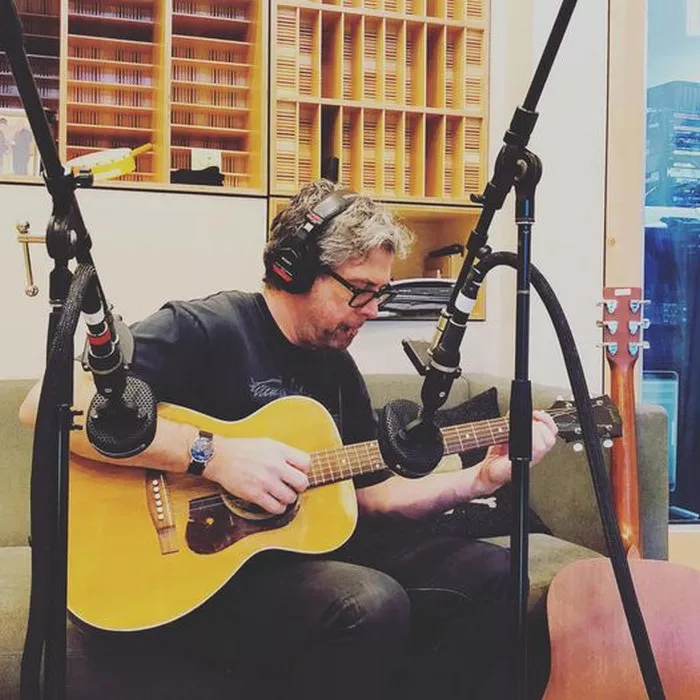In the annals of modern cultural history, the intersection of music and literature reveals a fascinating narrative. This article explores the harmonious relationship between these two artistic forms, particularly focusing on how music – or more precisely, the music industry and community – played a pivotal role in advocating for, and achieving, wider access to free books.
1. Prelude: Historical Context And The Role of Music in Society
Music has always been a mirror reflecting societal values and struggles. From the protest songs of the 1960s that underscored the civil rights movement to the philanthropic Live Aid concerts of the 1980s, musicians have often taken center stage in championing social causes. Historically, music has been a potent tool for education and social cohesion. In ancient Greece, music was intertwined with poetry and drama in the education of the polis, serving both to entertain and instruct.
2. The Modern Movement: Digital Disruption And Its Impact
The digital revolution of the late 20th and early 21st centuries dramatically reshaped the music industry. With the advent of MP3 technology and later, streaming services, music became more accessible than ever before. This paradigm shift not only changed how music was consumed but also how it was valued and understood.
Parallel to these developments in music was the evolution in the publishing industry. E-books began to gain popularity, mimicking the trajectory of digital music. However, the concept of freely available books was not as quickly embraced as free streaming music. Here, musicians and the broader music industry played a crucial, if indirect, role in advocating for open access to literature.
3. The Concert of Efforts: Musicians As Advocates for Free Access to Books
Musicians, often seen as the vanguards of cultural expression, have used their platforms to promote literacy and access to literature. Notable examples include Dolly Parton’s Imagination Library, which has donated millions of books to children to foster a love of reading.
Similarly, initiatives by artists like Chance the Rapper, who has made significant donations to public libraries and educational charities, illustrate this trend.
These efforts highlight a philosophical alignment between the ethos of the music industry’s newer business models (e.g., free streaming supported by advertising and subscriptions) and the concept of free access to literature. Musicians understood from their experiences that free access does not necessarily devalue the product; rather, it can enhance its cultural value and reach.
4. Harmonizing Notes: Libraries And Music Industry Collaboration
The collaboration between the music industry and libraries has been instrumental in promoting free books. Libraries, the traditional custodians of free knowledge, found natural allies in musicians. Library music programs, author talks sponsored by music festivals, and even library cards designed by famous artists are examples of this synergy.
Moreover, the push towards digital libraries benefited immensely from the infrastructure and cultural shifts pioneered by the music industry.
Streaming services demonstrated that digital distribution could be viable and popular, paving the way for e-libraries and apps like OverDrive and Libby, which allow users to borrow digital and audiobooks for free.
5. Case Study: The Role of Music Festivals in Promoting Literature
Music festivals often incorporate literary elements into their programming. For instance, the Glastonbury Festival in the UK has a long-standing tradition of featuring poets and authors alongside musicians. These festivals provide a platform not only for artists to showcase their work but also for promoting literacy and book donations.
The symbiotic relationship extends to how books about music or musicians become more popular, fostering a cycle of mutual interest that benefits both industries. Music festivals also frequently partner with local bookstores and libraries to offer book signings and pop-up libraries, creating a unique ecosystem where music fans are introduced to books and authors.
6. Technological Harmony: How Digital Platforms Facilitate Free Access
The technology that enabled the music industry to distribute content freely also helped the literary world. Platforms like Spotify and Apple Music served as models for book streaming services, which are increasingly popular. These platforms have negotiated the rights to books in much the same way they did with music, providing royalties to authors while offering free access to consumers through library partnerships or ad-supported models.
7. Future Movements: The Ongoing Evolution of Free Access to Books
As we look to the future, the relationship between music and free books appears poised for further integration. Virtual reality concerts might one day include interactive literary experiences, and AI-generated music could accompany personalized reading experiences. The possibilities are as vast as they are intriguing.
8. Conclusion
The journey of how music helped to liberate books is a testament to the power of cross-industry collaboration and shared philosophical goals. It underscores a broader narrative in which access to all forms of art becomes increasingly democratized, reflecting the essential human need for creativity and connection.
In conclusion, the music industry not only adapted to digital disruption by embracing the ethos of free access but also inspired and facilitated similar transformations in the literary world. This cross-pollination has enriched both domains, making art more accessible and ensuring that the joy of music and reading is shared as widely as possible. Through these efforts, musicians and all those involved have composed a symphony of enduring cultural impact.
Related topics:


























